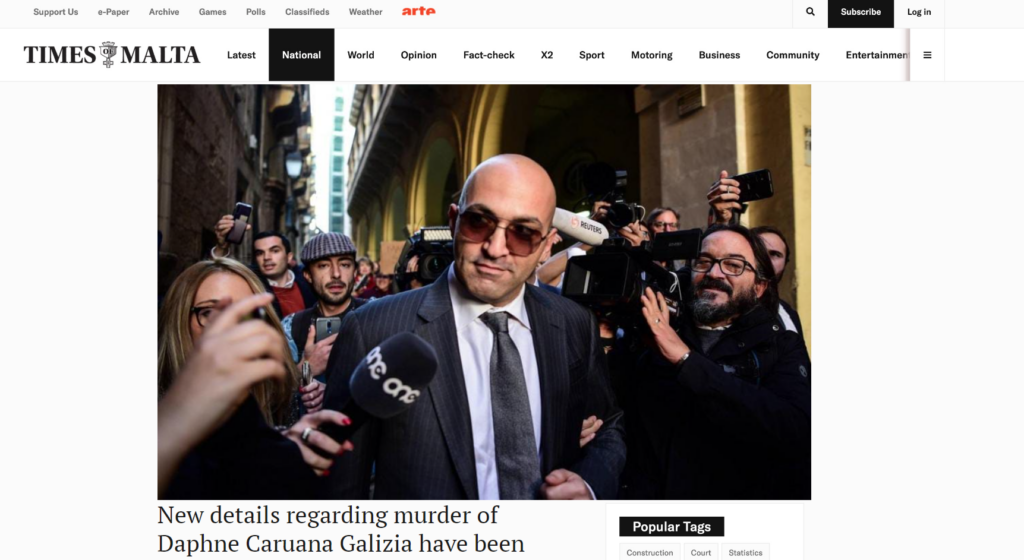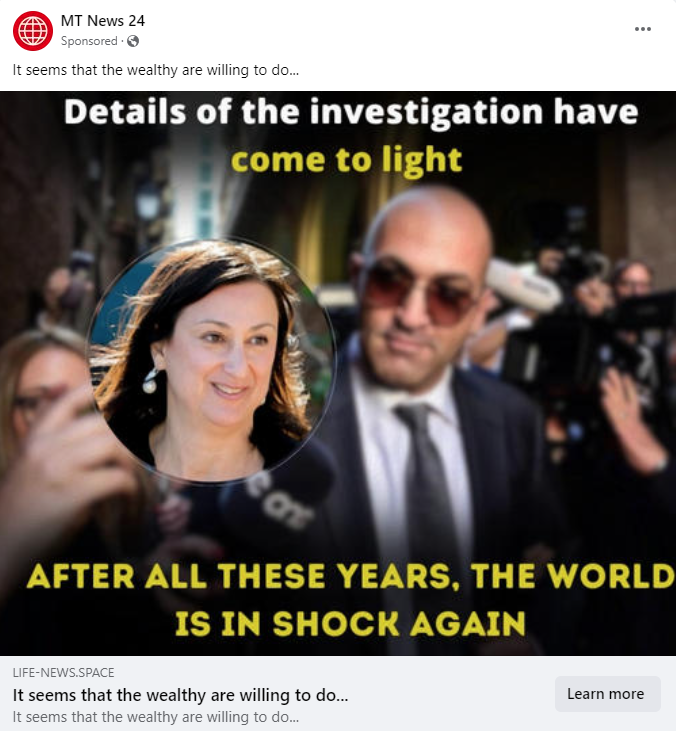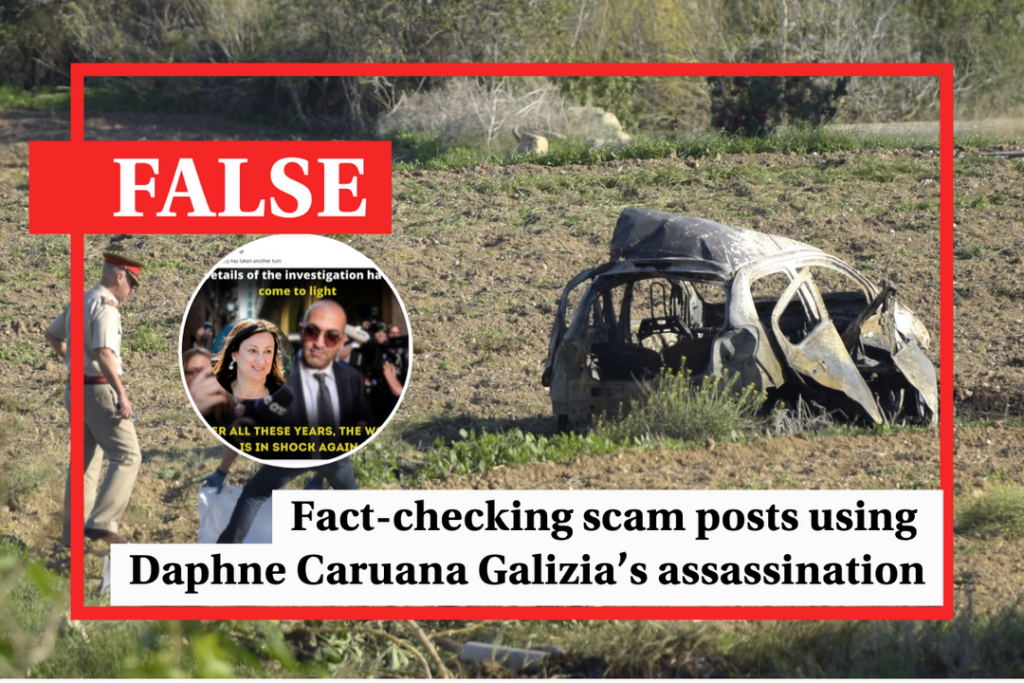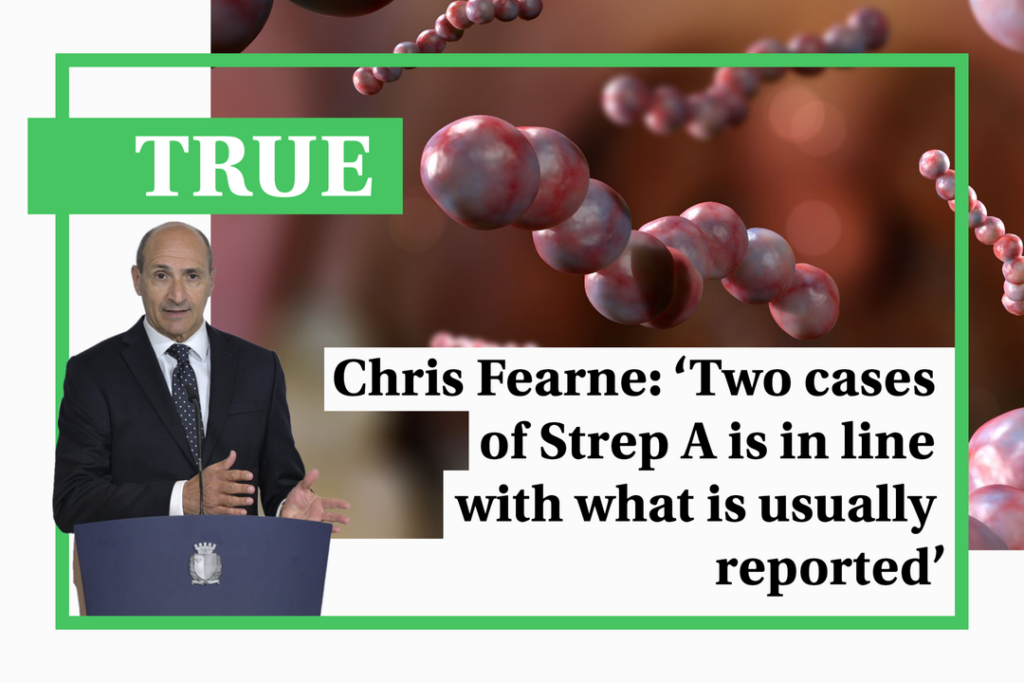Online fraudsters are using images and details linked to the 2017 assassination of journalist Daphne Caruana Galizia in order to scam unsuspecting readers out of their money, in a series of posts that have flooded Facebook in recent days.
The posts, often feature an image of Caruana Galizia as well as that of Yorgen Fenech, the man who stands accused of ordering her assassination.
Some of the posts feature the Times of Malta logo in an attempt to appear legitimate. Some also link to a spoofed Times of Malta website, with a false headline claiming that “new details of regarding the murder of Daphne Caruana Galizia have been recently revealed”.

The spoofed website weaves together genuine facts about the murder investigation, such as Fenech’s arrest aboard his yacht as he was seeking to flee the island, with the false claim that she was murdered for investigating his lucrative involvement in a cryptocurrency platform.
While this is not the first time that scammers have used spoofed news websites or images of public figures to profit off vulnerable readers, this latest scam suggests an unusually detailed familiarity with the investigation and the discussion surrounding it, making it more difficult than usual for readers to discern.
Aside from the uncannily accurate language used throughout parts of the fake article, the scammers also use photos of several key players in the investigation, including police commissioner Angelo Gafa (who is obliquely referred to as “a police officer”).
60,000 views from multiple fake pages
What’s more, scammers are posting identical posts from several fake Facebook pages, seemingly in an attempt to flood social media and gain as many views as possible.

An analysis of the posts suggests that they have recorded some 60,000 views since the beginning of the month, with some of them having been shared multiple times by local social media users.
The posts appear to be the work of seasoned scammers, who have used the same website URLs for similar cryptocurrency scams in the past. In fact, the title of some of the URLs used still bear the description of a previous scam which claimed that “The National Bank of Malta is suing Lawrence Gonzi for his words on the air”.
Verdict
The posts are the latest in a long line of cryptocurrency scams using the image of public figures.
However, this is an uncharacteristically detailed example of how scammers are adopting seemingly genuine language about local issues to dupe people.
This claim is therefore false, as the evidence clearly refutes the claim.<
The Times of Malta fact-checking service forms part of the Mediterranean Digital Media Observatory (MedDMO) and the European Digital Media Observatory (EDMO), an independent observatory with hubs across all 27 EU member states that is funded by the EU’s Digital Europe programme. Fact-checks are based on our code of principles.
Let us know what you would like us to fact-check, understand our ratings system or see our answers to Frequently Asked Questions about the service.





